
‘It took me a decade’: the 2023 Booker prize shortlisted authors on the stories behind their novels
Paul Murray
The Bee Sting (Hamish Hamilton)

Photograph: Patrick Bolger/
I started writing The Bee Sting at the end of 2017. I’d spent the previous 18 months working on a screenplay and I was aching to get back to the freedom and possibility of a novel. But for a long time I couldn’t decide what to write. I had three very different ideas and I started making notes for each one: blocking out scenes, tracing character arcs, all that. Looking back, I can see I was nervous about beginning something new after being away from fiction for so long, and trying to prove to myself that it would work. But notes don’t tell you anything about a novel’s voice, which is the most important thing about it, and which you won’t discover until you actually start to write.
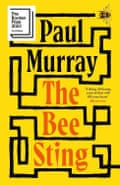
Nevertheless, one character stood out from the vast pile of notes. Her name was Cass Barnes, she was 17, she wanted to be a poet. She had a scar on her arm, and I knew she’d got it from falling through a glass table when she was drunk. But where was this table? And why was she drunk? I began to think about her life – the Irish Midlands town she came from, her family, their troubles. I had a few friends from that part of the country, and I remembered their stories from home – a bee that flew into a bride’s veil, a car business that went under, the busybodies who monitored every coming and going. They all found their way into the novel that was gradually taking shape before me, braided with newer stories, things that were showing up on my daily news feed: the rise of extremism, the enslavement of young minds by tech, the ongoing desolation of our planet.
After about three months of writing about a disenfranchised teenage poet, I realised that the book wasn’t just about Cass. I couldn’t make sense of her without bringing in the rest of her family, too – her little brother, her mother and father. Each of them has their own problem to deal with, and what they can’t see – though the reader can – is that all of those problems are connected, rooted in their shared past. I wanted every family member to have a distinctive voice, and I spent a long time working over the sounds and rhythms of their speech. Dickie, the dad, is ponderous, wasting his intelligence endlessly second-guessing himself. His wife, Imelda, is the opposite: everything’s coming at her in a rush, she doesn’t know how to deal with it, and she tells her story almost without taking a breath.
Cass and her family make many mistakes, and they’re not always good to each other or to themselves. But I came to love them, and, though it’s a novel about grief and trauma, working on it brought me a lot of happiness. All in, it took me five years: from the first draft, written in longhand in my tiny studio in Dublin, through the many revisions, mostly done at home. The title, The Bee Sting, was the last thing to arrive.
Chetna Maroo
Western Lane (Picador)

Western Lane started with the feeling of being inside a squash court, with a voice saying: “There were three of us.” I knew there were three sisters on the court. I knew there was a father on the balcony above, instructing the girls. And I knew they all felt the presence of an absent mother. It’s rare for me to experience such a clear starting impulse for a story, but I trusted it.
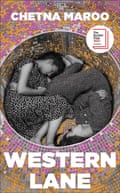
The book is about a family grappling with loss. In the wake of their mother’s death, 11-year-old Gopi and her two older sisters become absorbed in the game, training with their father every day at a local community sports centre – the Western Lane of the title. As I was thinking about Gopi’s world, I was reading Tarjei Vesaas’s The Ice Palace (translated by Elizabeth Rokkan) and Carson McCullers’s The Member of the Wedding. In both novels, a child stands on a threshold, longing to connect with other children or adults, or with something beyond herself or the world she knows. I found these works breathtaking in the way they captured the mysteries and unease of childhood, as well as its hopes. But I have a feeling the deepest influence on Western Lane was the science fiction I read as a child. In the days before I wrote the opening I returned to these books and stories, and to a line attributed to an alien in Kurt Vonnegut’s Slaughterhouse-Five: “Because this moment simply is.” The further I got into Western Lane, the more this line – and the idea that a moment exists permanently in space – seemed to become an essential part of its fabric.
To me, the writing of any novel is fundamentally mysterious. The three years it took to write Western Lane were painstaking; weekends and evenings spent rethinking and reworking word choices, paragraphs and narratives. I’ve come to think it is not despite but because of this concentration that my lasting memory of the writing is of a sense of calm, and a sort of innocence and surprise at what I found in front of me.
Paul Lynch
Prophet Song (Oneworld)
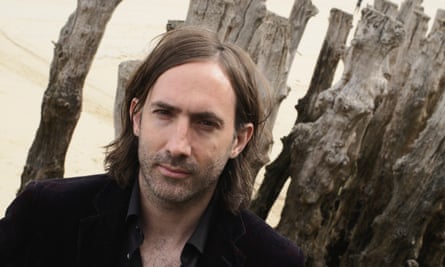
Sometime in the late 1990s, I read Hermann Hesse’s 1927 novel Steppenwolf and was stopped by a passage that prophesied the great destruction coming to Europe. The book’s antihero, Harry Haller, observed with a cold eye the unrest in Germany, the fragmentation of its politics, the public discourse rife with racism and xenophobia. In nihilistic fancy, I wondered about the rush of being alive during such times. The 90s seemed complacent and dull, and political unrest an impossibility. After all, we were living in a period when “history” had come to an end, according to the political theorist Francis Fukuyama.
I reread Steppenwolf in 2018 shortly before I began to write Prophet Song, and experienced a chill of recognition. I thought about Brexit, Trump and the surge of defensive nationalism spreading throughout Europe. I thought, too, about the implosion of Syria and the west’s response to its refugees. And I wondered about how the real is no longer real, how misinformation and disinformation have led to a decline in trust in traditional sources of authority. I wanted to understand where all this might lead.
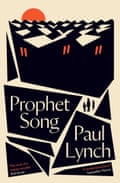
The philosopher George Santayana said: “A prophet … cannot be conceived as anything other than a man of imagination, whose visions miraculously mirror the truth.” Prophet Song took shape as a dystopian ruse that seeks to explode the form. How can such a novel be speculative when what is happening on these pages belongs to the here and now? And yet, the book’s implacable logic asks questions of the future too. I spent four years writing the novel, living through curfews and police controls that mirrored those I had just written about, and dealing with the brain fog and fatigue of long Covid.
I understood that I did not want to write a political novel, that the calling card of serious fiction is not grievance but grief – that which lies beyond our ken, that which we are powerless to control. I sought to put narrative shape on life and death, power and powerlessness, on how life is lived in blindness, and that we act with certainty but reap the unforeseen. I wanted to explore the nature of force, problems of choice and free will, and to pose questions about human dignity. The framing of the questions proved more important than the answers, though I knew early on that the novel must end with a question only the reader can answer.
Jonathan Escoffery
If I Survive You (4 th Estate)
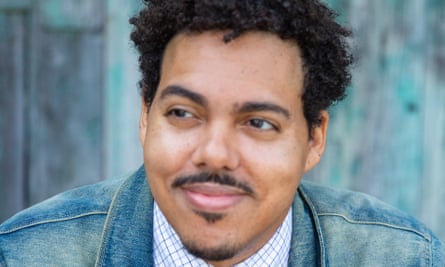
When I first began writing If I Survive You, I had an idea about bringing Jamaican Americans to the page in a way that accurately represents us and says to the world, we are here. At the same time, I wanted to explore immovable family dynamics, which very quickly became an exploration of belonging and alienation in a broader sense. I think I’ve felt, with rare exceptions, that I’ve always been in the wrong place at the wrong time. Perhaps I’m just strange, or hypersensitive, but I think this may be common among minoritised people. At some point we wonder: what if I lived in a country, city or time that embraced the fullness of my humanity?
I think, in some ways, this feeling is bigger for the child of immigrants, because the emigrating generation understands why they left their country of origin. They may have weighed their options and made the best decision they could, and so they feel settled. The child, who had no say in these decisions, might only know, viscerally, that the country of their birth is openly and actively hostile towards them, and that they are largely strangers to their parents’ country of birth. These children live in a kind of limbo. I’m speaking in generalities of course, because different immigrant populations have different histories and reasons for immigrating, and have different receptions in their adopted country.
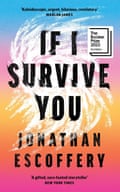
This is all sounding very heavy and grave, but the last thing I wanted to do is brutalise my readers. I see humour as an entryway into these topics, that might allow readers to leave the book feeling energised, rather than demoralised. And since I’m my first reader, I didn’t want to brutalise myself either.
I wasn’t sure if it would be a novel or a collection of stories, but I knew I wanted each “chapter” to stand alone, while the larger narrative continued to build toward a single climax and resolution. Structuring the book this way created many technical challenges, which felt like puzzle-building, and perhaps this was part of why the book took me about a decade to write.
Sarah Bernstein
Study for Obedience (Granta)
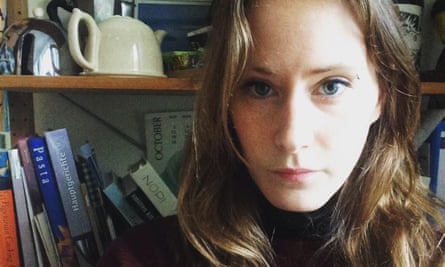
A few years ago, I went to a retrospective of the Portuguese painter Paula Rego’s work. On one wall, they had put up a quote from the artist that said something like: “I can turn the tables and do as I want. I can make women stronger. I can make them obedient and murderous at the same time.”
How, I wondered, could a trait like obedience, usually feminised, usually characterised as passive, become something else, even a kind of agency? I became a bit obsessed with this dynamic, which is evident in Rego’s work, especially in her paintings of domestic scenes where we see servants, wives and daughters undertaking their usual acts of service but in ways that destabilise the apparent locus of power, sometimes even that evoke the threat of violence.
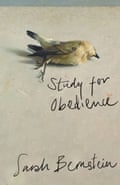
I wanted to see whether I could recreate such a dynamic using language, and it very quickly became the basis for Study for Obedience. I wanted to explore how systems of domination can be disabling to the people exerting dominance as well as to the people subject to it, and to do so in a way that also took into account a broader experience of history. So, on the one hand, there is the relationship between the narrator and her brother, and by extension with her wider family, her community, the expectations of gendered behaviour, both secular and religious. On the other, there is the narrator’s relationship to the townspeople in the place where her brother has made his life that just so happens to be the place her forebears fled.
The difficulties of the relationship between herself and the townspeople are contemporary in that they relate to concerns about the assimilation of outsiders and the narrator’s own social failings; and they are also historical, related to the way her ancestors were treated by theirs and everything that has happened since. In working out the latter, I was curious about the way a certain experience of history might be passed down through generations of a people – in this case the Jewish people. In the novel, the experience of history is one that is characterised by a sense of incipient catastrophe – not a specific event that can be pinned down and named as traumatic, but an embodied sense of the way each new disaster seems to sit in the last, the way things happen and keep on happening. The repetition is terrifying, but it’s also absurd and even comical, which I hope comes across in the book, too.
Paul Harding
This Other Eden (Hutchinson Heinemann)

This Other Eden emerged from a process like collage. It is a synthesis of elements from my first two novels, several literary traditions with which I’m fascinated and often teach in my university classes, landscape, still life and portrait painting, and history – particularly the history and continuing legacy of US chattel slavery and the racism on which it was founded and that has continued without interruption since the country’s beginnings. The specific historical events that inspired the plot and setting took place in the summer of 1912, on Malaga, an island off the southern coast of Maine, when a racially mixed community was evicted from its home there. The novel does not attempt an actual history of the families or any individuals from Malaga; two or three articles I read about the grim episode prompted the idea of a fictional account of a similar, imagined population suffering a fate that many racially integrated settlements have experienced across the country.
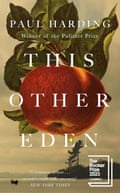
The characters on Apple Island, as it is called in the novel, came from various sources. When I saw a photograph of an older woman from Malaga, sitting in a rocking chair with two young children on her lap, the image fused with that of a character whose presence haunts my first novel, Tinkers, although she does not appear in the book – a grandmother raising two of her grandchildren that her daughter gave birth to after being raped by her father. She became Esther Honey, the matriarch of the island families, who I think of as a kind of Old Testament prophet. A young man I at first vaguely associated with the 19th-century African American painter Charles Ethan Porter, who appears painting haystacks in a meadow on an estate in the fictional, eponymous Massachusetts village of my second novel, Enon, became Ethan Honey, sent there to paint through the dubious motives of a teacher/missionary on Apple Island, mostly because he presents as white. I first sketched the character Zachary Hand to God Proverbs after seeing medieval religious ivory carvings at the Museum of Ontario and thinking it might be interesting if someone spent his time carving similar scenes inside a hollow tree, as an act of devotion.
I spend years collecting disparate elements and arranging and rearranging them (literally – much of my early drafting is written on Post-It notes), over and over, until something like a literary cosmos begins to cohere and to articulate and reveal itself in finer and finer resolution, until characters that seem like real human beings, with real souls, begin to appear on the page.


No comments:
Post a Comment